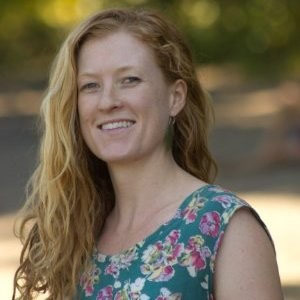
Passionate advocate for community engagement in the development of public policy; skilled in conducting policy research and analysis with a focus on qualitative methods using Atlas.ti; interest in policies related to diversity, equity and inclusion as well as immigrant and refugee policy at the local level; strong leadership skills and ability to work in diverse groups.
As a policy professional I seek to ensure that policy is not only reflective of community needs but that the community is actively involved in the design and development of policy that will affect their lives. This is a delicate process, one which requires an understanding of going beyond the optics of outreach. I consistently seek opportunities where I can build this skill.
My value in community engagement is rooted in a lifetime of volunteering both at home and abroad. In college I interned with SOAR, a local refugee resettlement agency which settled approximately 350 refugees per year in the Portland area. This work led me to become an avid volunteer for four years. I eventually became the program assistant working closely with our clients and case managers.
Most recently I was the coalition coordinator for the Portland Immigrant Rights Coalition. In this role I was responsible for facilitating and supporting a group of community organizations to advocate for change in local policies affecting immigrant communities.
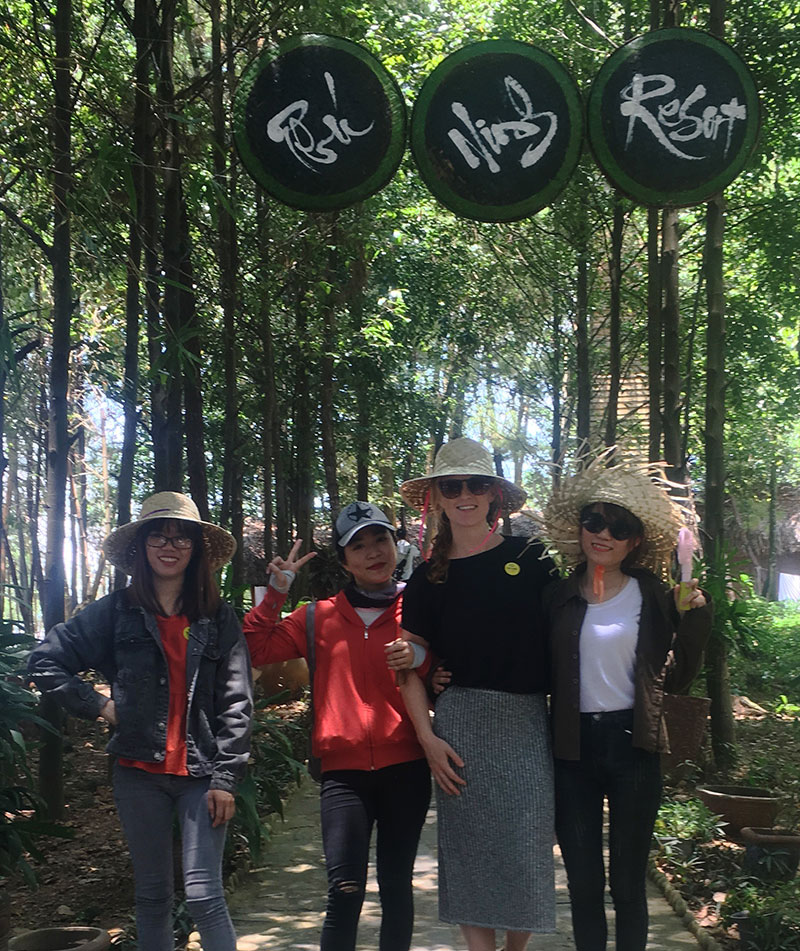
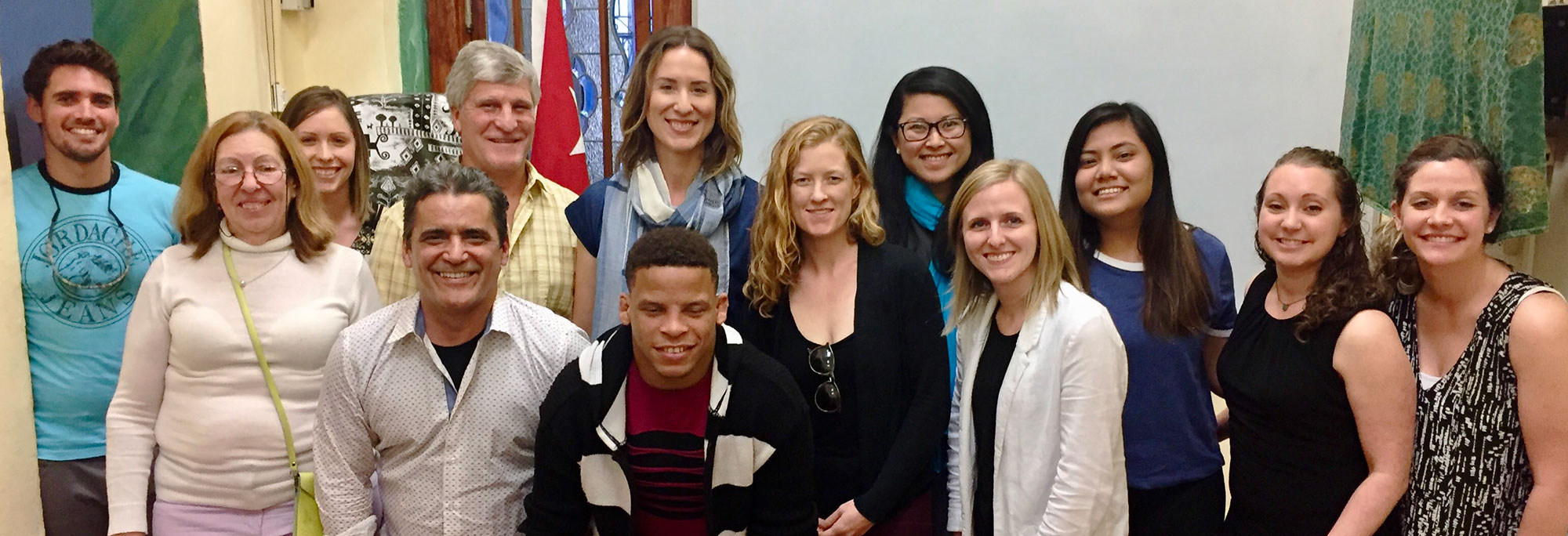
During my work with newly arrived refugees in Portland I witnessed our clients being greatly impacted by US policy, and my education in international affairs provided me with an understanding of the greater forces at play. My decision to return to school to develop skills in policy analysis was driven by this work and a need to better understand how to make policies more equitable and effective.
Policy decisions must be rooted in good analysis, it was during my graduate work that I developed this skill. My skills include: writing policy analysis reports, designing qualitative and quantitative research projects; conducting focus groups and interviews; analyzing qualitative and quantitative data using Qualitative Analysis Software such as Atlas.it and SPSS respectively.
I apply an ethical framework to public policy problems by consistently taking into consideration the effects policy has on underserved communities; by valuing the engagement and participation of those communities in the defining of policy problems and the development of policy solutions.
Through my studies I have researched and analyzed the history of US immigration and refugee policies. I have traveled to Vietnam and Cuba to research their unique migration histories and policies.
For my final project I played an integral role in conducting a Workplace Assessment for Portland Fire and Rescue. This assessment provided data on the current workplace culture in terms of the bureau's diversity, equity and inclusion. The data will be used to inform the development of a city mandated 5-year equity plan. My role on this project was to facilitate the 16 leadership interviews and 11 focus groups and analyze all transcripts in collaboration with my colleagues.
Whether it is as a volunteer coordinator at a refugee resettlement agency, a student representative, or a coalition coordinator I am drawn to work for causes for which I am passionate and my passion is often expressed through efforts of leadership. I find joy in supporting my colleagues in their work, identifying strengths and catalyzing growth in others.
As a volunteer coordinator and recruiter at SOAR I increased our pool of volunteers five-fold in under one year. Using my ability to identify the needs of our clients as well as the organization and align them with the needs of our prospective volunteers, I was able to foster connections between community members and newly arrived refugees in truly meaningful ways.
After two months in my graduate program, my colleagues nominated me along with a fellow member of our cohort as student representatives. For our one year term, my colleague and I collaborated as liaisons between the administration and the students. As the second cohort of the program, we played an integral role in shaping our new program.
Finally, as coalition coordinator I played an integral role in organizing two popular assembly events with approximately 300 attendees and 103 organizations represented, and 100 attendees with 30 organizations represented, respectively.
September 2016 - June 2018 (3.88 GPA)
September 2007 - June 2011 (3.5 GPA)
Portland, OR
Immediately following graduation from my masters program I will attend the Community Engagement Research Institute at UC Santa Cruz. I applied and was accepted into this program this Spring. I am excited to dive deep into this four day intensive learning experience where I will study equity-oriented community-based collaborative research.
Following the institute my husband and I will take a five week trip to East Africa. This trip is part work and part play. While it is officially billed as my two years delayed honeymoon, I have managed to turn the experience into a mini-research project. The trip is a chance for me to reconnect with old friends and colleagues from my work in Tanzania over a decade ago. Additionally, I have coordinated meetings with leaders in the East African entrepreneurial tech scene. We are both interested in learning more about how technology has been used in East Africa in social policy and economic development. This aspect of our trip is made possible by our close collaboration with both NLab and Apps and Girls located in Dar es Salaam.
Upon returning in August, I hope to find work in a community based and culturally specific organization, or if possible a research institute conducting qualitative research and evaluation.
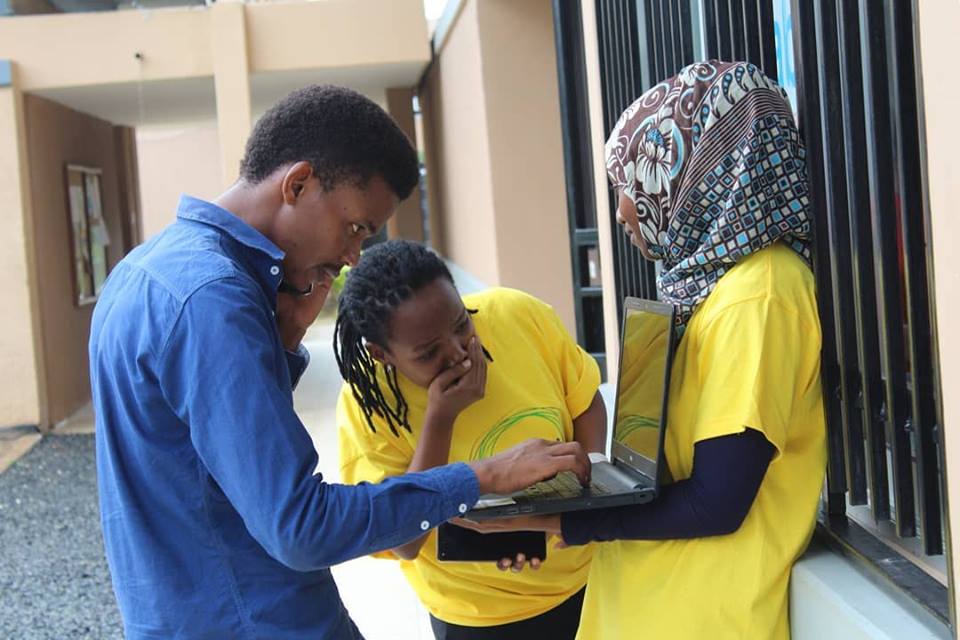
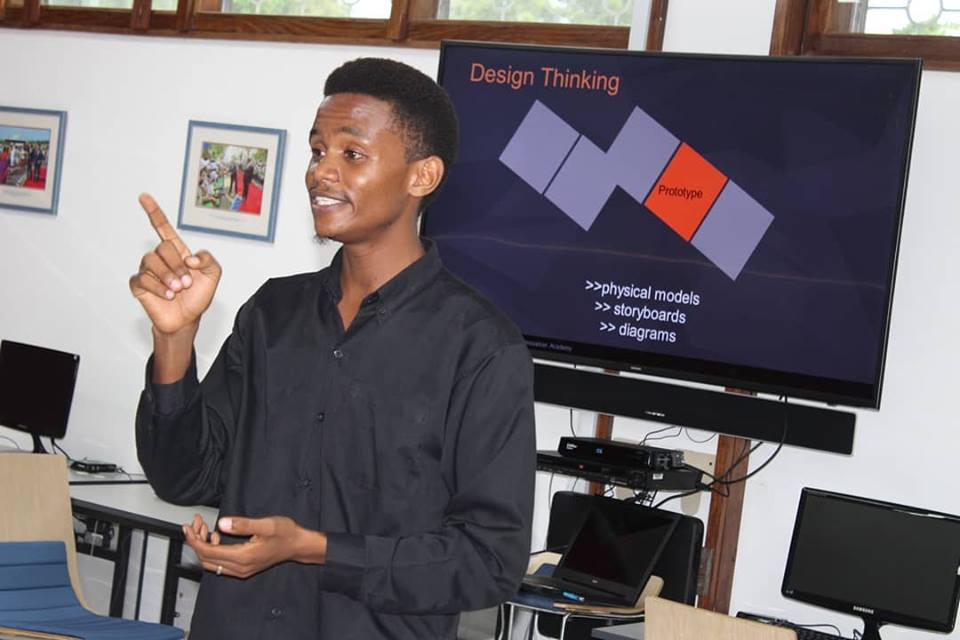
My name is Eric Vega. I am a retired Lecturer of Ethnic Studies. I taught at California State University for approximately twenty years. In that role I was called upon to evaluate the work of many students. As a civically engaged instructor I also helped create a community cultural center that brought together young social justice activists for leadership training.
Over the last three years I have had the opportunity to continue my involvement and work with young people and political activists in Portland dealing with Civil Rights and Immigration issues.
I write this letter to bring to your attention and demonstrate support for Zoe Flanagan. I worked with her on the Steering Committee of the Portland Immigrant Rights Coalition. As our Co-ordinater, she was at the center of our work to end the unjust detention and deportation of immigrant family members in our communities. In that role she oversaw a complex network of committees, kept us briefed on legal/policy issues and directly organized our on-the-ground advocacy efforts. She never shirked a duty and was consistent in her work. Zoe is an excellent writer, unafraid of public speaking and persuasive in argument. I worked directly with her on legal issues, communications and public forums. She was persistent in her research and methodical in her analysis. I believe the work of our Coalition was furthered by her good counsel and belief in seeking truth from facts. Social justice advocacy can be difficult at times but Zoe also brings a sense of humor and social intelligence that facilitates accomplishing tasks.
I believe Zoe Flanagan is part of a much needed sector in our society, the scholar activist. She is a strong, accomplished, intellectually gifted and goal oriented leader. I recommend her to your attention. Please feel free to contact me directly if I can further her career in any way. My email is ericveryoso@gmail.com.
Below are examples of my research and analysis work over the past few years.
This report is currently in final drafting stages.
In 2016, Portland Public Schools (PPS) launched a one-of-a-kind Somali language class at the elementary school level. PPS implemented this new class in response to a report released the year before, which showed that Somali students were greatly falling behind their peers across many indicators....read moreNotably, while district wide graduation rates for the class of 2013-2014 was 70%, graduation rates for Somali students was only 58%. The new dual language instruction (DLI) class is unique because the curriculum is the first of its kind to include both the dominant Somali language, Somali Maxaa, as well as the Somali Bantu language, Maay-Maay, spoken by a minority community within Somalia. It is important that these programs meet the intended goals of improving Somali student performance, because educational attainment is a strong predictor of immigrant integration and socioeconomic progress later in life. We expect this new curriculum will evolve over time, this assessment is a first step towards making sure the instructors are empowered to make necessary adjustments so the program can be effective.
The purpose of this research is to conduct a check-in with the two new Somali DLI instructors two years into this new program in order to assess their preparedness and level of support they are receiving from the community, their colleagues and the administration. This research will consist of three dyadic interviews, including both Somali instructors as well as other DLI instructors working at PPS. With this design, we believe the participants can share and compare their experiences. The research questions for this project include: 1) How are these instructors designing their curriculum? 2) What are some of the challenges PPS DLI teachers face? 3) In what ways do PPS DLI instructors feel supported? 4) How do dual language instructors perceive their work in the context of addressing immigrant children's ability to succeed in school?
This paper examines the effects of nations' policies on transnational families, specifically looking at Cuban families. Transnationalism is a relatively young theory, it was developed in the mid-1990s as an alternative to the migration theories of assimilation and integration. ...read more Scholars argued at the time that migrants were actively maintaining ties with their homeland while also establishing themselves in their respective receiving nations. The transnational practices of families are greatly impacted by the policies of both the home nation and the receiving nation, making Cuba a unique case to examine given the governments' extreme control over migration since the revolution in 1959. This paper looks at the theory of transnationalism and what role the state has played in the internal dynamics of family units as well as in the creation of transnational families altogether. The researcher specifically asks how the perception of Cuban transnational families has changed over time, primarily looking at the period of 1959 – 2000, with some reflection on modern day. This research is the result of an in-depth review of the literature, as well as a two week study tour to Cuba.
This research asks: why do state or local law enforcement agencies (LEAs) seek to cooperate with federal immigration law, and more specifically what are the reasons state or local agencies use to join or not to join the 287(g) program? ...read more In order to answer this question a literature review was conducted specifically focused on the history of the 287(g) program. The paper begins by discussing the research model and the strengths of the sources used. This is followed by a discussion of the findings with a summary of the history and the arguments for and against this policy. The paper concludes with an annotated bibliography.
This report aims to understand how policy change happens in immigration policy in order to develop a strategy for change in the United States. In order to do this, the report utilizes comparative analysis methods to examine the single case of the French Exceptional Regularization of 1981-82 in-depth and identify the key factors which led to policy change. ...read more Much can be learned from the French case since it was one of the first immigration control policy mixes centered around an amnesty policy tool. The policy change was also during the beginning of a period of time of politicization of immigration policy, which provides a further unique look at the early arguments for and against immigration control policies through a political lens.
This report analyzes the design and implementation of immigration policy in order to apply those lessons to immigration reform in the United States. In order to do this, the author takes a comparative analysis approach, by making an asynchronic comparison across time and space (Dodds, 2010, p. 324) to specifically analyze the use of regularization provisions in immigration reform policy. ...read more The analysis dives deep into the design and implementation of one of the premier regularization policies in Europe, the French Exceptional Regularization of 1981-82. The case is then compared to the United States Immigration Reform and Control Act of 1986. Lessons learned from the comparison are then applied to a proposal for how the United States could design and implement immigration reform centered around an amnesty policy.
Vietnam's transition away from a planned economy and towards liberalization began with the doi moi reforms in 1986, and in the thirty years since the country has seen significant economic development. Relics of the planned economy however still exist within the country's institutions and their existence presents a troubling conflict for the Vietnamese Government. ...read more A prime example of this conflict is between the economic development policies focused on industrialization and urbanization, and the system of household registry, called ho khau, which was adopted from a similar system in China called hukou in 1964 (World Bank Group, 2016, p. 1). The household registry system limits citizens' freedom of movement which contradicts the principles of the free market. Today, in theory one has the choice of migrating to economic hubs in urban areas, but this choice comes with the cost of getting temporary residency in the new province as well as the cost of losing access to certain public services as well as employment in the public secure. The ho khau system has been relaxed some in the past 30 years, however its continued existence today presents limitations to Vietnam's sustainable and equitable development.
This paper looks at the historical shift in the Cuba/US relationship through the eyes of conflict resolution. First, it defines the state of negative peace that existed prior to the announcement made by President Castro and President Obama on December 18th, 2014. ...read more The paper will then discuss the concept of positive peace and peace building, so that examples of each can be identified. Finally, the paper will look at the context in which negotiations between Obama and Raul took place. The paper will highlight important signals and gestures from each side, as well as highlight the Pope's important role as mediator in peace building.
Under the Trump Administration, immigration policy has been dramatically altered. While the Obama Administration was known for an unprecedented level of deportations -President Obama in fact earned the title of "Deporter and Chief" - the Trump Administration plans to go further, pushing for a "no limits immigration enforcement strategy." 1 One outcome of this new aggressive strategy will be the increased demand for detention space....read more The state of Oregon does not have immigration detention facilities within the state, the closest immigration detention center is the Tacoma Northwest Detention Center in Washington state. However, Northern Oregon Regional Correctional Facilities (NORCOR) in The Dalles has a long standing intergovernmental service agreement (IGSA) with Immigration and Customs Enforcement (ICE).2 NORCOR was opened in 1999 to serve four member counties: Wasco, Hood River Sherman, and Gilliam.3 Each county contributes to the primary operating fund for the jail at 50 percent, 40 percent, 5 percent, and 5 percent, respectively.